Even as the Olympics lit up the nation, we were already on the path to disaster
London Olympics, 2012: Were we all too easily swept up in the instant nostalgia of it all, asks Tom Peck

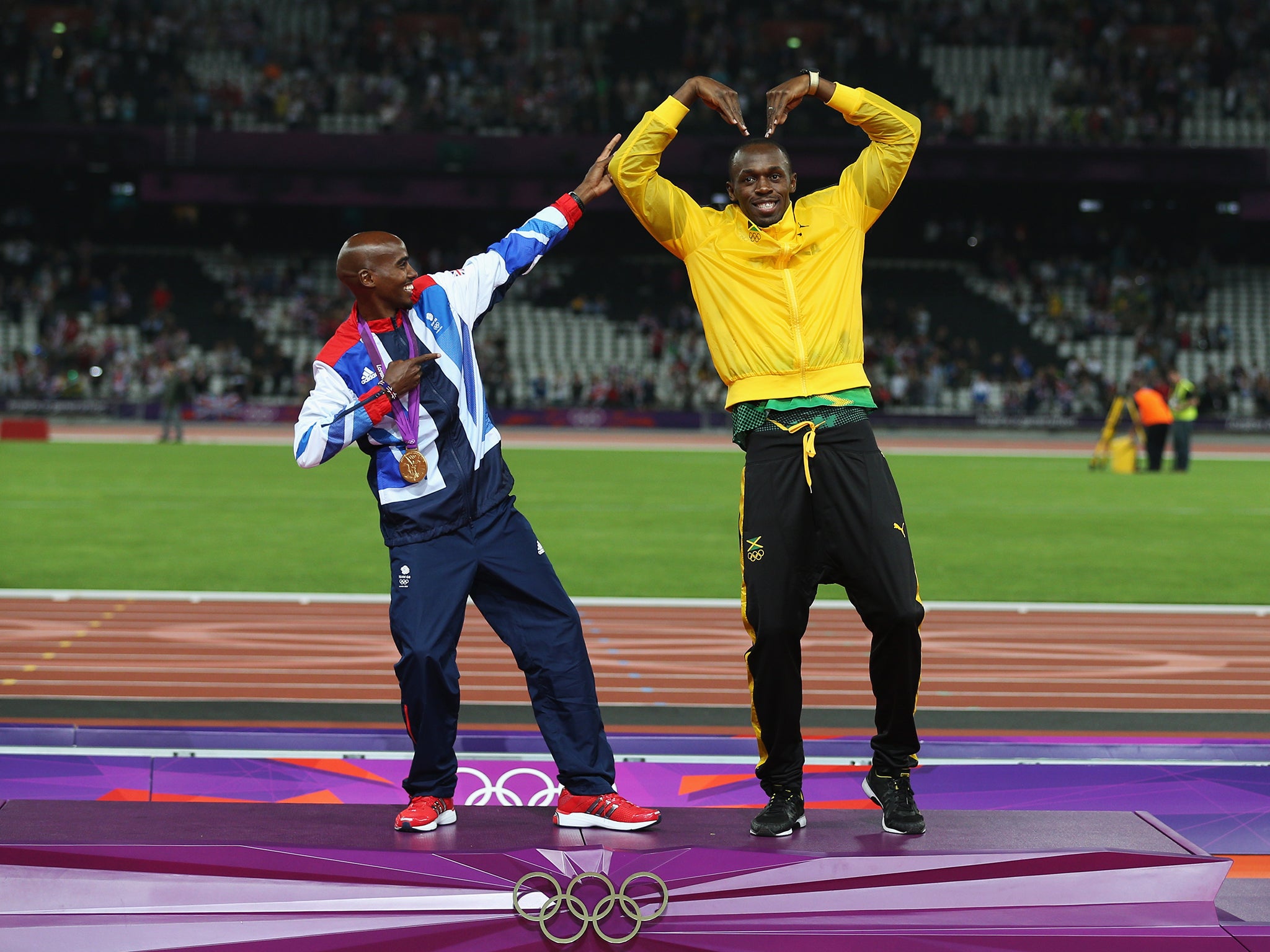
How did we get from the Olympics to this? It has been a howl of exasperation issued somewhere, by someone, at some point, probably hourly since the EU referendum result poisoned the national mood overnight. More recently, it has prompted a certain degree of London 2012 revisionism. That in fact, even by that high summer of unsurpassed joy, the country was already set on its path to ruin.
The politics of austerity had been set in motion. David Cameron and George Osborne’s plan, of delivering the most brutal cuts to the parts of the country that were in the deepest need, on the grounds that they would never vote Conservative anyway, had begun. Osborne was booed at the Paralympics, specifically for policies that had vicious consequences on people with disabilities. Ironically, one of the official sponsors of the games was Atos, the same multinational outsourcing corporation that had been hired to do the government’s already notorious work capability assessments – making disabled people prove they were disabled in unimaginably demeaning ways, or else lose their benefits.
It also cannot be ignored that other triumphs of those wondrous weeks have not aged well. When Mo Farah passed the Olympic flame on the final lap of his 5,000m, and started to pick up the pace, reining in all before him, I have never heard a noise like it. Sports press boxes can be quite pious places. They are multinational, and in theory, strictly non-partisan. Cheering is frowned upon. When Farah crossed the line, amid an arrow shower of air-punching, I saw one or two in tears of joy. The purity of that moment is now gone. Sir Mo’s coach, Alberto Salazar, has been suspended for four years over doping allegations. Questions hang in the air, and they hang because they have not been satisfactorily answered.
21
screams of joy
A few weeks before the games, I sat down in a cafe in Loughborough University, and spoke to the talismanic British cycling coach Sir Dave Brailsford at great length. The Lance Armstrong revelations had detonated the foundations of his sport. Cycling’s reputation was quite possibly at the lowest point any sport has ever reached. Back then, Sir Dave was meant to be his sport’s saviour, not just with Team GB but with Team Sky. He was unequivocal in his views on doping, and convincing too. This was the man that could prove that you can still do great things and you can do them clean.
The crowds blew the roof off the velodrome, the noise a baptism and a valediction for British heroes old and new. Laura Trott. Jason Kenny. Sir Chris Hoy. There is nothing to suggest any wrongdoing on the part of any of these people. But the air is not as rarefied today as it was back then.
The constant stream of gold medals – in cycling, rowing, sailing, judo, slalom canoeing and everything else in between – was the thread that ran through everything else. Four years later in Rio, we would do even better, finishing a frankly obscene second in the medals table, ahead of China.
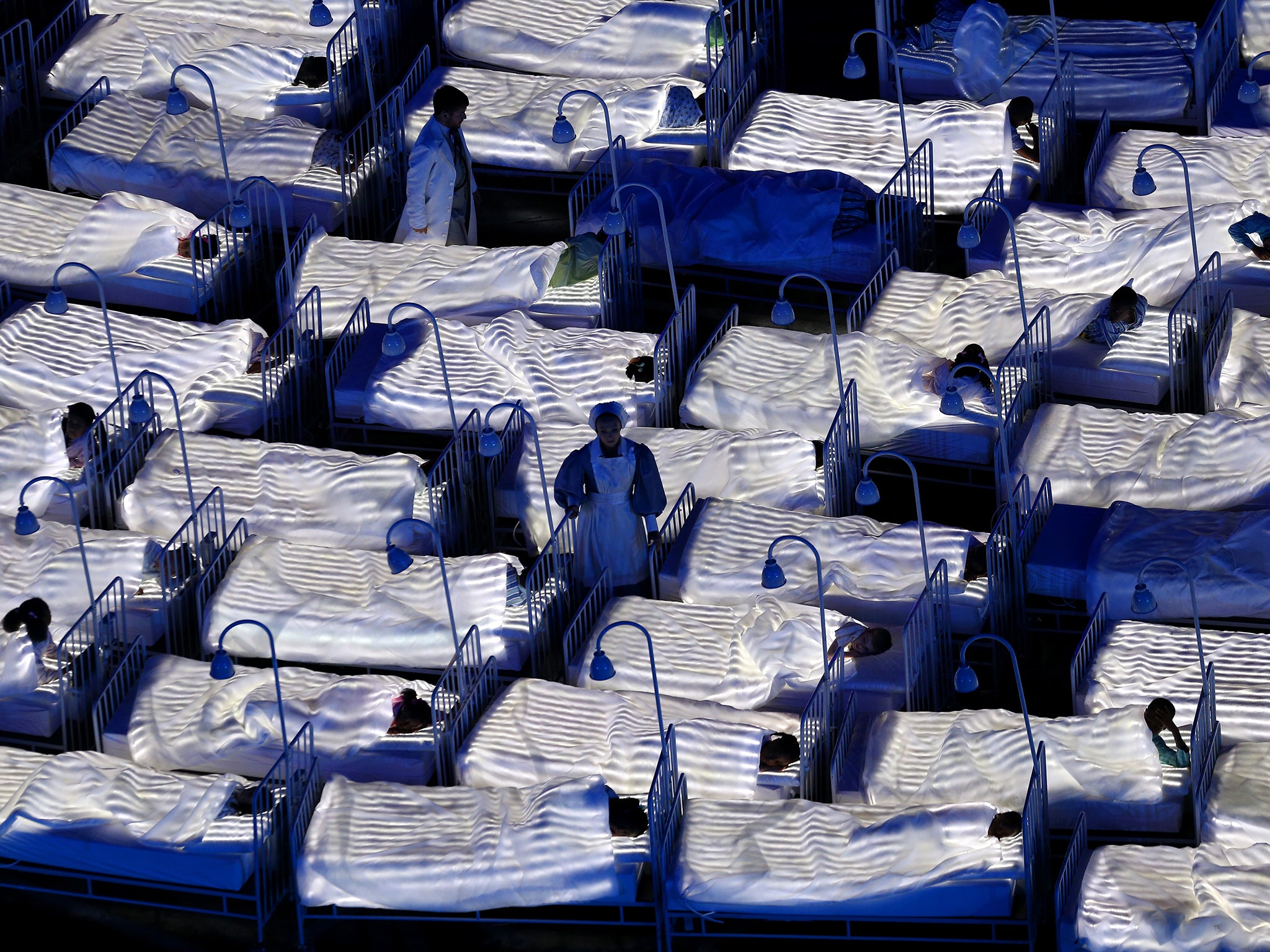
But our response has been to question the value of Olympic greatness, the vast sums that are spent. There is also the UK elite sport funding model, often described as cynical – to pursue sports in which greatness might be more purchasable than others, through technical expertise, like cycling and sailing. And government money is handed out only when there is the prospect of a medal, and ruthlessly held back if there is none. After football, basketball is the world’s second most popular sport, by a comfortable margin. Here, it scarcely exists.
Promises to “inspire a generation” have not been kept. The grand upswell in sporting participation never materialised. Journalists have done their bit in exposing those broken promises but here’s the thing – they were never made to be kept. No government minister was ever told to find a way to lure a lazy nation off its sofas and came up with the idea of bidding for the Olympics.
We wanted the games for their own sake. The promise to inspire youth was made to please the ears of the old men of the International Olympic Committee, who at the time were watching their youth TV audiences plummet, a hammer blow when the primary reason for your existence is to be the intermediary for the sale of Coke and Big Macs.
All of which is the long way round to the inevitable discussion of that opening ceremony. Those few hours on that instantly mythical Friday night when the weather defied all expectations had become a cultural milestone in the nation’s history before they had even concluded. It has, of course, been over-analysed, over-discussed, but it resonated for a profoundly true reason which has since died a tragic death.
It seemed, at the time, to answer an eternal question that the United Kingdom is addicted to asking itself, precisely because there is no answer. Who are we? What is our place in the world? And Danny Boyle’s genius was to make it a celebration of Britishness as lived in everyday life. There was not a Beefeater or a double-decker bus or a red telephone box in sight. Instead there was the NHS, the Arctic Monkeys and the lesbian kiss from Brookside.
Danny Boyle’s genius was to make it a celebration of Britishness as lived in everyday life. There was not a Beefeater or a double-decker bus or a red telephone box in sight
All this and a man named Mohamed, who talked like a Londoner and ran like the wind, seemed to answer those questions for us. At the time I wrote that £9.3bn seemed like a snip for this exaltant celebration of who we are. To make a proud country feel proud of itself.
But it didn’t last, did it? Were the warning signs there? I can recall, the morning after Sir Chris Hoy became the most decorated Olympian in this country’s history, asking him how he might feel about the very real possibility that, come Rio 2016, he could be competing for an independent Scotland.
He avoided the question entirely, of course. But the very fact of it being asked intimates that we had already begun our national journey towards where we are now.
We were on our way to becoming bitterly divided, politically banjaxed and an international laughing stock. A basket case of a country, hopelessly broken in two by dint of having asked itself a profound question, and returning an answer that has broken all before it.
It is easy to ponder upon these things with the benefit of hindsight. But should there have been more foresight? Were myself and others too easily swept up in the instant nostalgia of it all?
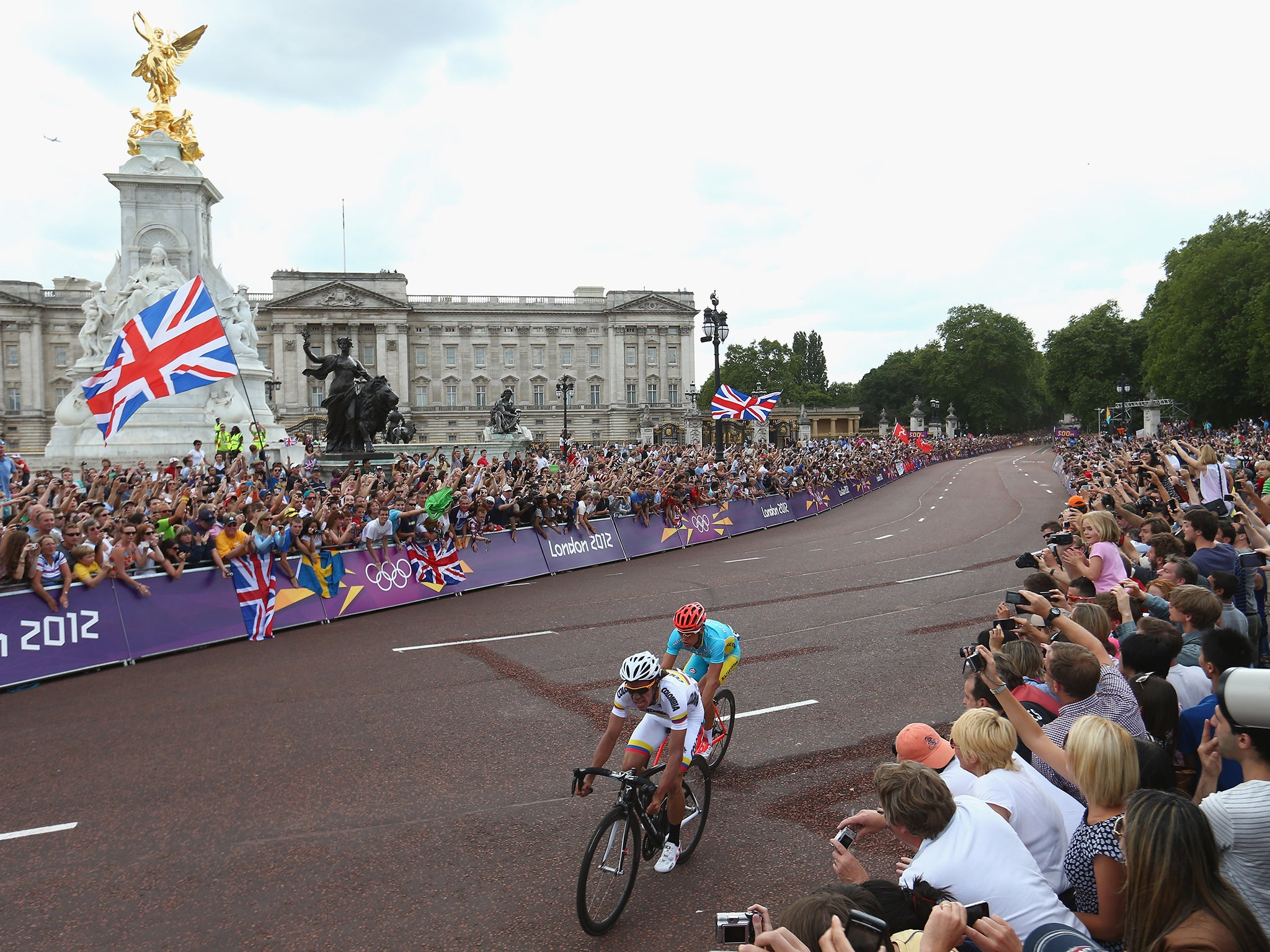
I don’t think so. Unqualified and unrestrained joy was the correct emotion for those heady days. On the morning before the opening ceremony, I wrote that, in just a few hours’ time, it would be the end of the beginning:
“The end of ‘out-of-control budgets’, the end of the ‘ticketing fiasco’, the end of the ‘security debacle’, the end of ‘question marks still hanging’.
“The end of all the politicising, and the beginning of what you could be forgiven for forgetting it is all about. Finally, the suits are off. Behold! At last, the lycra. Let the games begin.
“For a short time, we still have the raw excitement of not knowing what new chapters London will contribute to the Olympics story, the one in which Usain Bolt almost walks over the finish line to smash the world record. Or where Kelly Holmes’ eyes widen as she realises she’s finally taken the last chance she will ever have. Or where a diminutive child gymnast lands with a perfect bounce on a mat, confounding the scoreboard operators, who don’t know how to display a perfect 10. What will be our billion-dollar photograph? It is a tantalising prospect.”
It was a question that was answered when the stadium began to empty on its final night, and Mo Farah and Usain Bolt stood on the top of the winners podium, doing each other’s celebrations.
I can’t say I have any regrets about the way I wrote about that event.
Though one curious symmetry still lingers. The day after the end of the Paralympics, crowds gathered outside Buckingham Palace to watch an open-topped bus parade of all of Great Britain’s Olympic heroes. But I can only recall them chanting one person’s name. “We love you Boris, we do! We love you Boris, we do!”
He had, I freely admit, been the right person at the right time. His role was no more than that of chief cheerleader, but he had done it in a way no other British politician could ever have hoped to match.
Standing in the September sunshine, speaking to a wall of young men and women with gold and silver and bronze around their necks, the then-mayor of London said: “You brought home the truth about us and about this country – that when we put our minds to it there is no limit to what Britain can achieve.
“And speaking as a spectator, you produced such paroxysms of tears and joy on the sofas of Britain that you probably not only inspired a generation but helped to create one as well.”
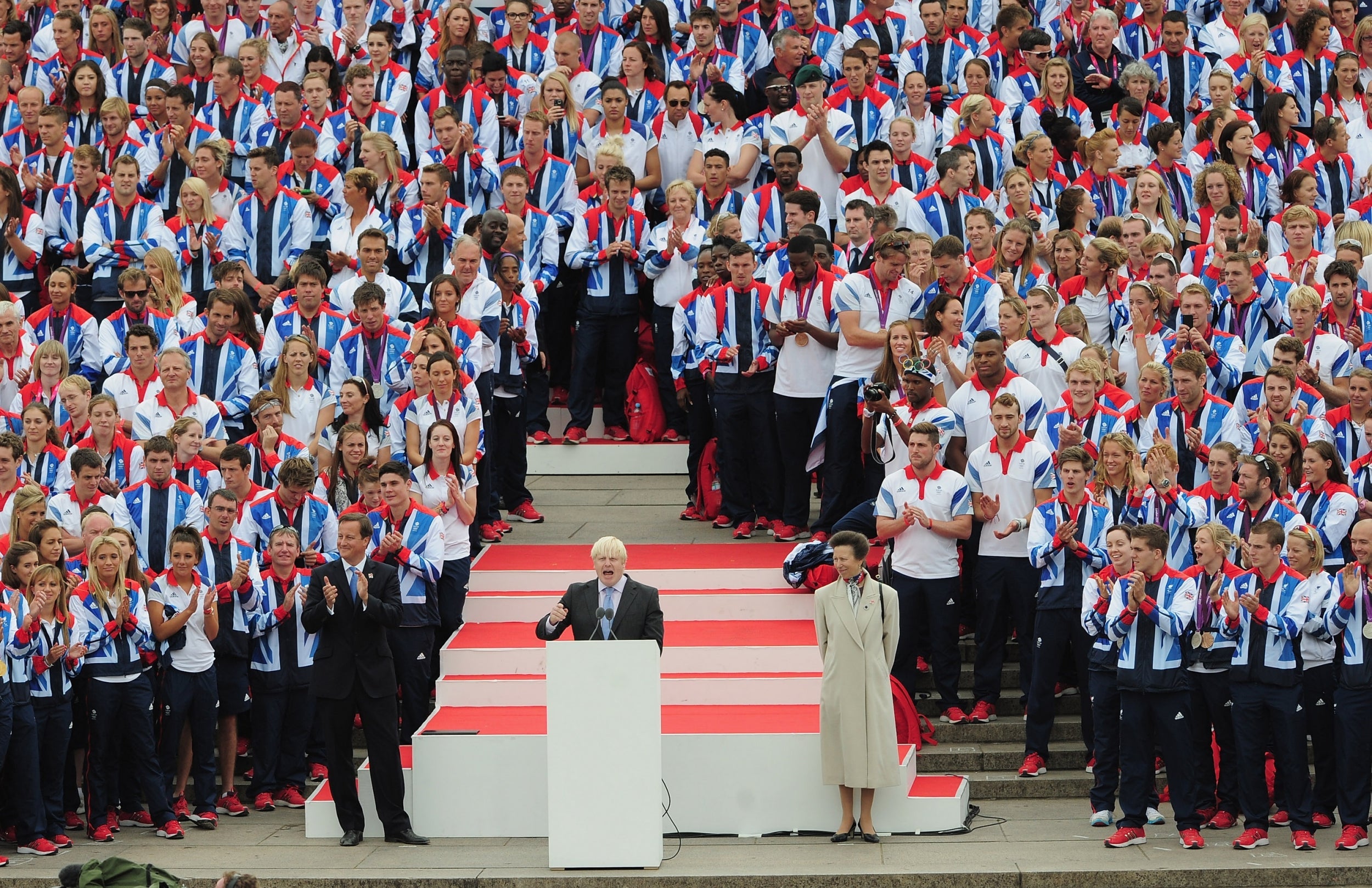
Seven years on, and Boris Johnson’s own paroxysms of joy have created a generation the size of which he refuses to answer. I’ve also since been told, on impeccable authority, that his becoming stuck on that zipwire was no accident. He weighted himself down, deliberately. That should surprise no one.
That Johnson should carry the public adoration for the industry of others doesn’t really matter. But with hindsight, perhaps a fulcrum was tipped that summer.
I spent most of my own journey to that open top parade on the phone to Tessa Jowell, as she told me the story of how she came to persuade Tony Blair to change his mind and bid for the games. Six years later, I would be sitting in the press gallery of the House of Lords, as there she stood amid spellbound silence, wearing a light grey headscarf, her own unforgiving brain cancer now being given over to the cause of public service.
And that, really, is the mark of how far we have fallen. We will, surely, see her like again. But for the meantime, it is hard to see when.
The greatest show on earth, in one of the greatest cities on earth
Tom Peck, 27 July 2012
It is entirely fitting that it should start with a stopped clock. At 9pm tonight, when that grand timer in Trafalgar Square – which almost failed to start – finally reaches zero, it is indeed the beginning, but it is also the end.
The end of “out-of-control budgets”, the end of the “ticketing fiasco”, the end of the “security debacle”, the end of “question marks still hanging”.
The end of all the politicising, and the beginning of what you could be forgiven for forgetting it is all about. Finally, the suits are off. At last, the lycra. Let the games begin.
The running, the jumping, the synchronised swimming, the unsynchronised swimming, the rowing, the shooting, the taekwonding, the pommel-horsing and every other feat of spectacular endeavour, starts now.
For a short time, we still have the raw excitement of not knowing what new chapters London will contribute to the Olympics story, the one in which Usain Bolt almost walks over the finish line to smash the world record. Or where Kelly Holmes’ eyes widen as she realises she’s finally taken the last chance she will ever have. Or where a diminutive child gymnast lands with a perfect bounce on a mat, confounding the scoreboard operators, who don’t know how to display a perfect 10. What will be our billion-dollar photograph? It is a tantalising prospect.
And one, after all, that will be over fairly soon. It is not a long time, two weeks, when you think of what passes in seven years. Where were you, seven years ago, when Jacques Rogge opened his envelope on a stage in Singapore, and read out the word “London”? When Lehman Brothers was about to report its biggest-ever profit, and not many of us had heard of a politician from Hawaii with a foreign-sounding name.
It is in these two weeks, not the previous seven years, that where once stood piles of discarded fridges on top of millions of tonnes of toxic earth, hundreds of the planet’s most talented, most dedicated and for the most part rather young people, will be going about the business of determining what does or doesn’t get written on their gravestones in front of a watching world.
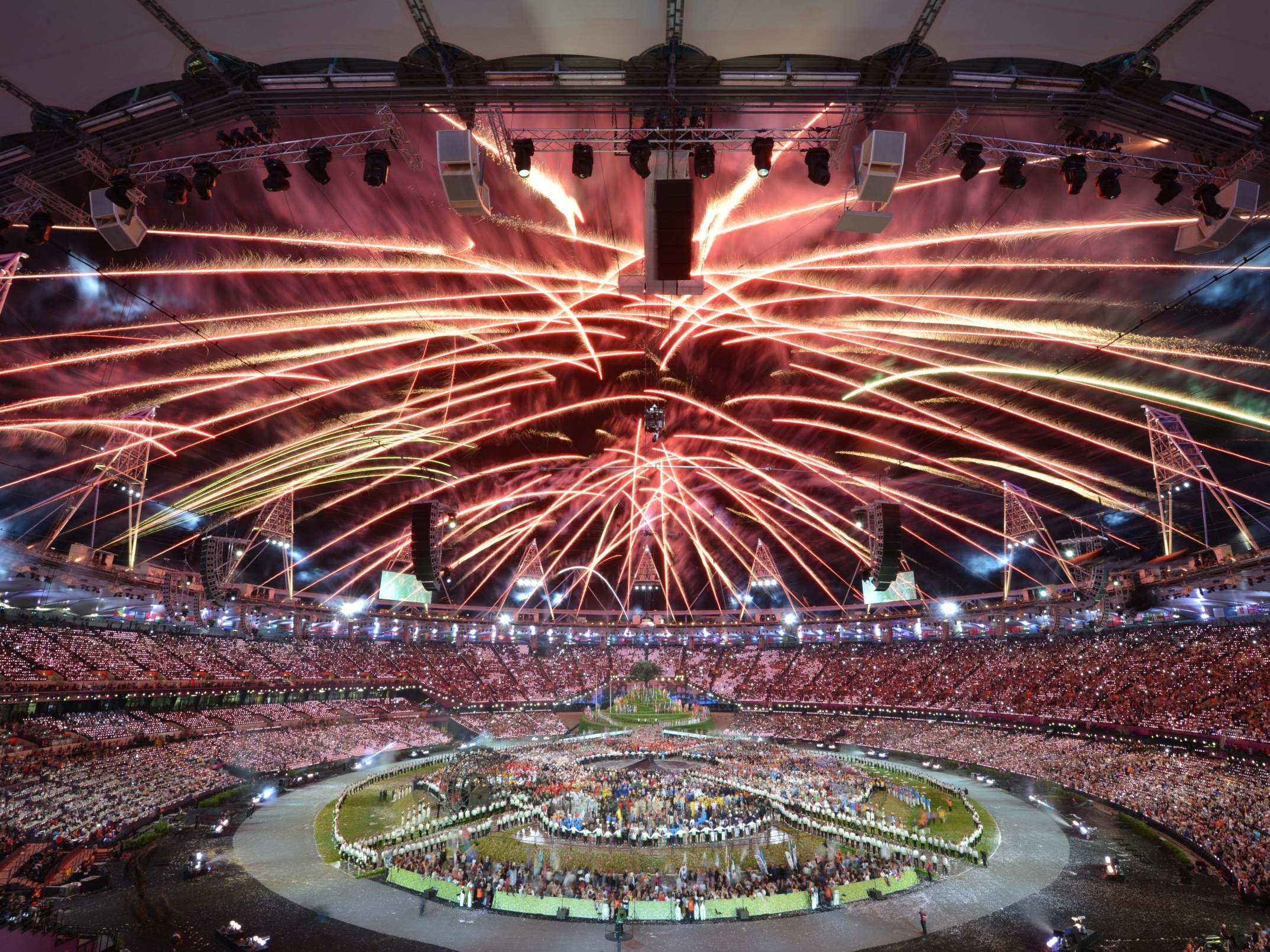
Things will, inevitably, go wrong. Trains will be cancelled, platforms rammed, taxi meters will tick towards eternity while the traffic never moves and the big boys zoom past in their BMWs on their way to some other segment of the Greatest Show on Earth to which you probably haven’t got a ticket. But just for a short while, try to be nice. After all, we’ve got guests.
Jamaica House with its jerk chicken stalls, and giant Bolt-watching screens, is installed in the O2 Arena. Russia Park, with its outdoor skating rinks in the middle of August, is open for business in Kensington Gardens. The Swiss have taken over the Glaziers Hall in south London and are inviting the world to the Bernese Games next weekend, with promises of “folk wrestling” and “cheese rolling” contests.
The giants of the American basketball team are stalking the streets of the West End. Slovenian swimmers are furiously tweeting pictures of themselves on Tower Bridge. Wimbledon’s Centre Court has been turned temporarily fuschia.
Despite the cavalcade of corporate sponsors that have both blazed its trail and followed in its wake, the Olympic Torch has been greeted with a tidal wave of goodwill on every step of its 70-day, 8,000-mile journey.
So, if you really don’t think the Olympics coming to your capital city when it is, for the time being at least, one of the greatest cities on earth, is not something worth telling the grandkids about, do bear in mind that there might come a point at which they’ll ask you about it.
You have two weeks to decide what you want to say back to them. If it’s: “You would not have believed the traffic!” or “Oh the queues to get on the Underground, the queues! The queues!” then brace yourself now for their dawning realisation that granny or granddad might not be all they’re cracked up to be.
Join our commenting forum
Join thought-provoking conversations, follow other Independent readers and see their replies
Comments